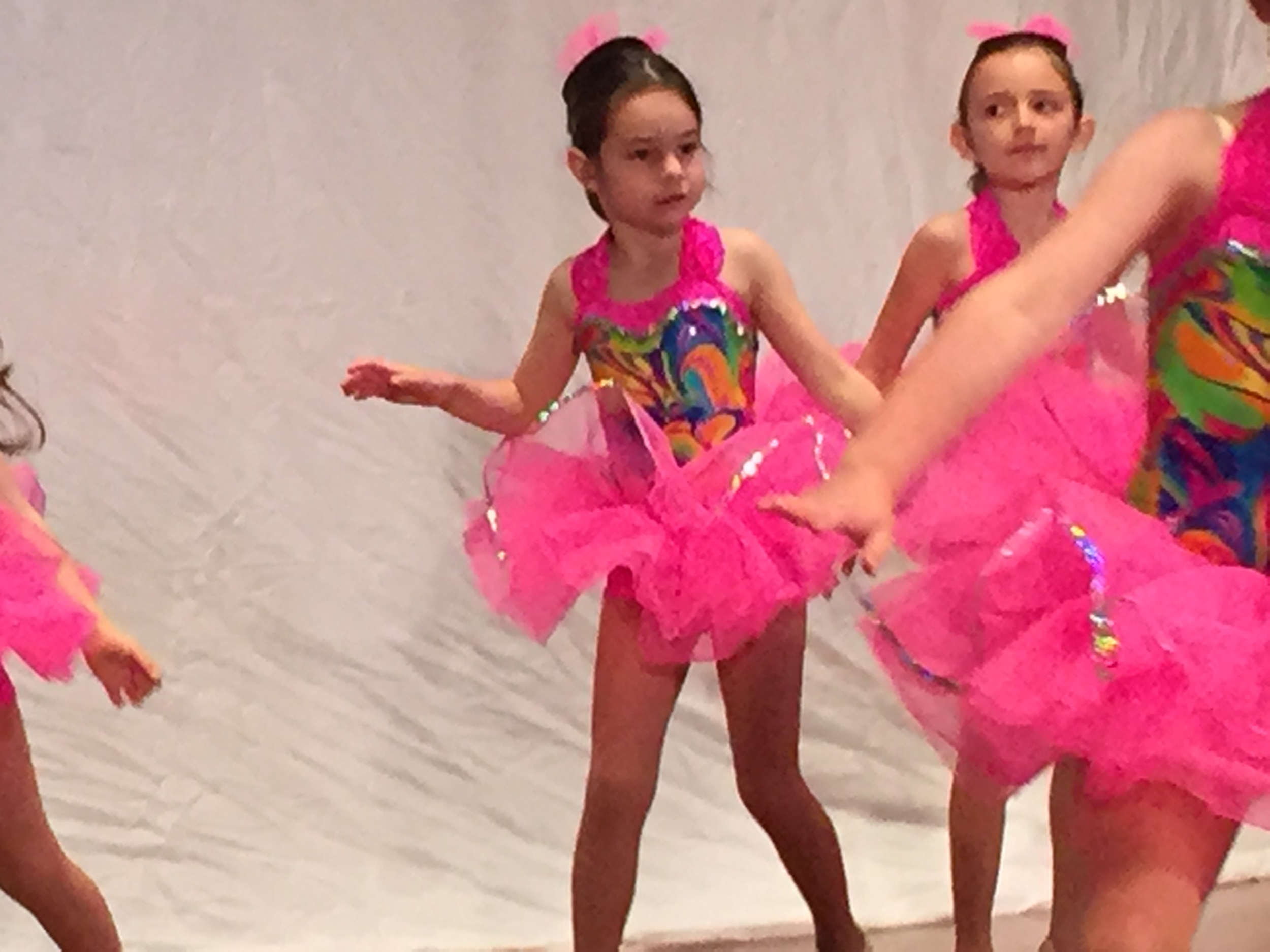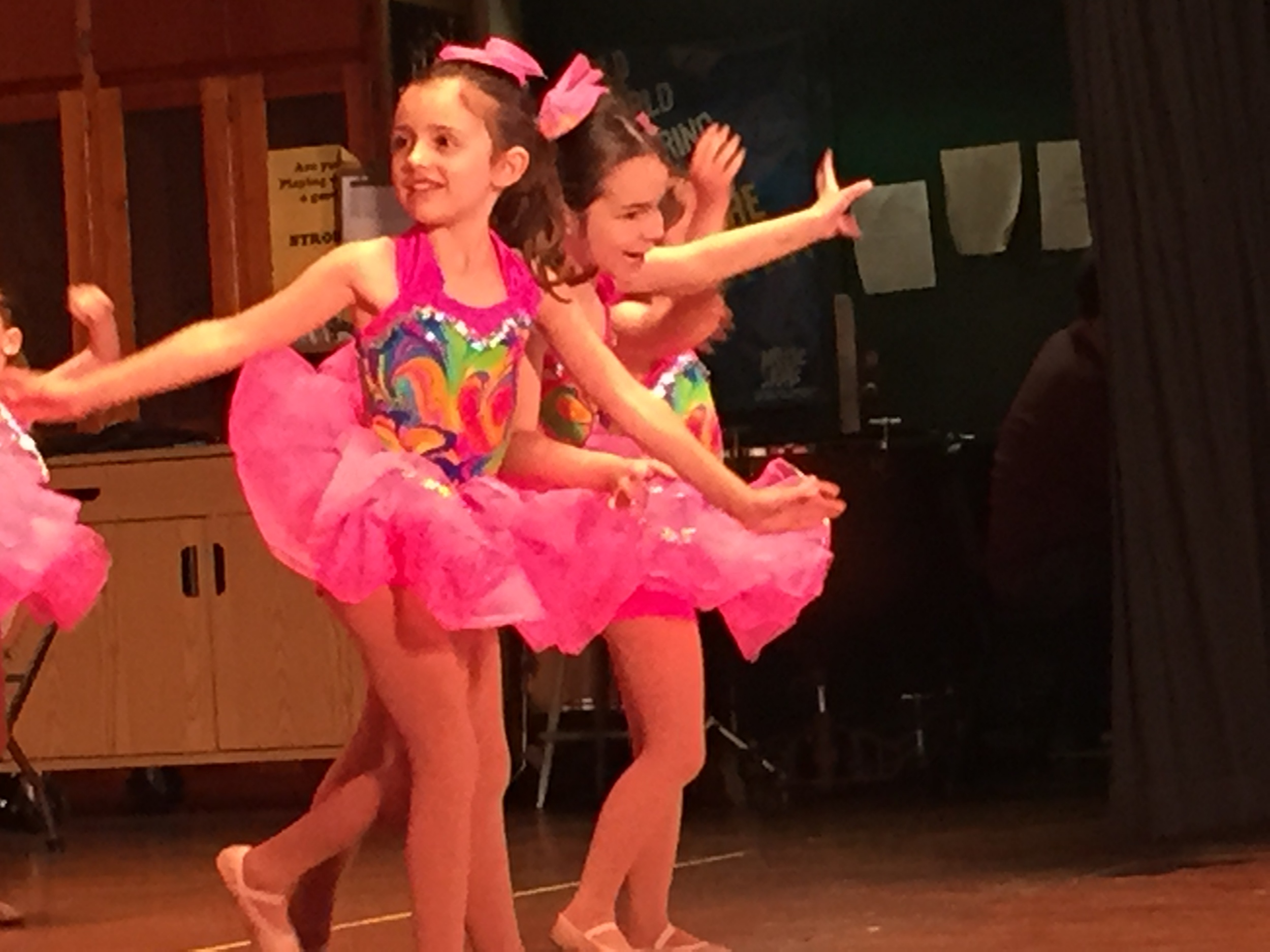My daughter is a joyous dancer, but she's not the most focused when it comes to choreography.
At one point I excused myself to stretch my legs and stepped into the lobby. In the less than ten minutes I spent there, I witnessed the following:
A wife speaking on the phone to her husband, who had taken a nap, overslept, and missed all three of their daughter's dances, which apparently were all schedule during the first half of the show. She was clearly upset and warned her husband to lie to their daughter if asked if Daddy saw her performance.
A couple minutes later, the husband appeared, snatched the bouquet of flowers from his wife, and entered the auditorium like a petulant little boy with his wife in apologetic tow.
I honestly wanted to stop the couple in their tracks and advise them to end things now and spare themselves a lifetime of unhappiness together. The man is clearly a douchebag (not to mention the kind of man who takes naps on a Saturday afternoon) and his wife, from all appearances, is a doormat. The relationship is doomed and rightfully so. Better to find a way to move on now than drag out the pain for months or years.
I refrained from saying anything, but I wondered if there might be a career opportunity here.
Relationship evaluator? Marital coach? Professional breaker-upper?
While this was going on, a doctor was standing near the stairs, taking a call from a patient. I heard him say, "I don't understand why you waited until now to tell someone that your foot is turning green. Is your primary care physician working today?"
A doctor's life is never as glamorous as I imagine.
Then the doors to the auditorium burst open and a man came charging out, holding a six or seven year old boy in his arms like a load of firewood. The kid was screaming, "I'm not going outside! I'm not going outside!" The man countered with, "You're #$%!!* going outside so shut the hell up!"
Despite the poor behavior of the lad, this was probably not the best way to handle to situation.
I couldn't believe the action taking place in the lobby in the span of a few minutes. I don't mind watching little kids dance, especially when they make hilarious mistakes, but the lobby provided more entertainment than any dance could (save my daughter's performances, of course).
Finally I re-entered the auditorium, only to see a middle aged woman at the back of the aisle dancing with more enthusiasm than the ten year-old girls on stage. The woman had apparently mistook this children's recital for a dance party and was doing her best to garner as much attention as possible.
Being second in line when the doors opened, we had snagged seats in the third row. Little did I know how boring the recital would be so close to the stage.
On a positive note, the recital was delightful. My daughter dances in a low-stakes dance company, so rather than cracking the whip and ensuring precision, children are allowed to make many hilarious mistakes and have fun.
It's always refreshing to see adults treating children like children. It doesn't happen enough in organized sports and similar activities these days.
I was also pleased to see that her teachers did not perform during the recital. As a veteran of many dance recitals, I know that it's common to see the instructors perform onstage, oftentimes in the first or last dance of the show.
I have always found this to be pathetic and sad.
This would be the equivalent of me performing a scene in my student's upcoming Shakespearean production or reading a poem during their graduation performances.
Clara's instructors were standing in the wings, just out of sight, pleading with the children to stop waving at their parents and dance a little.
Just where they belonged/

















